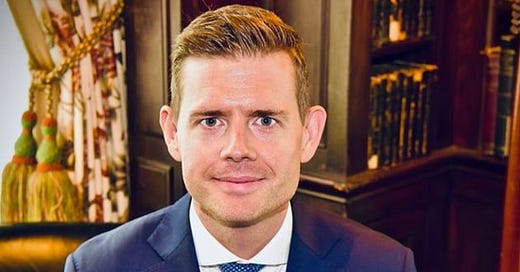"Too Close To Business, Too Far From The Nation"
Mathew Goodwin on the Tories at The Unherd Club
His hand tremors, seemingly trying to fight its way back to his side, displaying discomfort as he completes the purchase. The bleep of the card mocks the victim in this transaction; the man sighs as he takes his small bottle. His face is fraught, he seems to stagger, and he wince…




